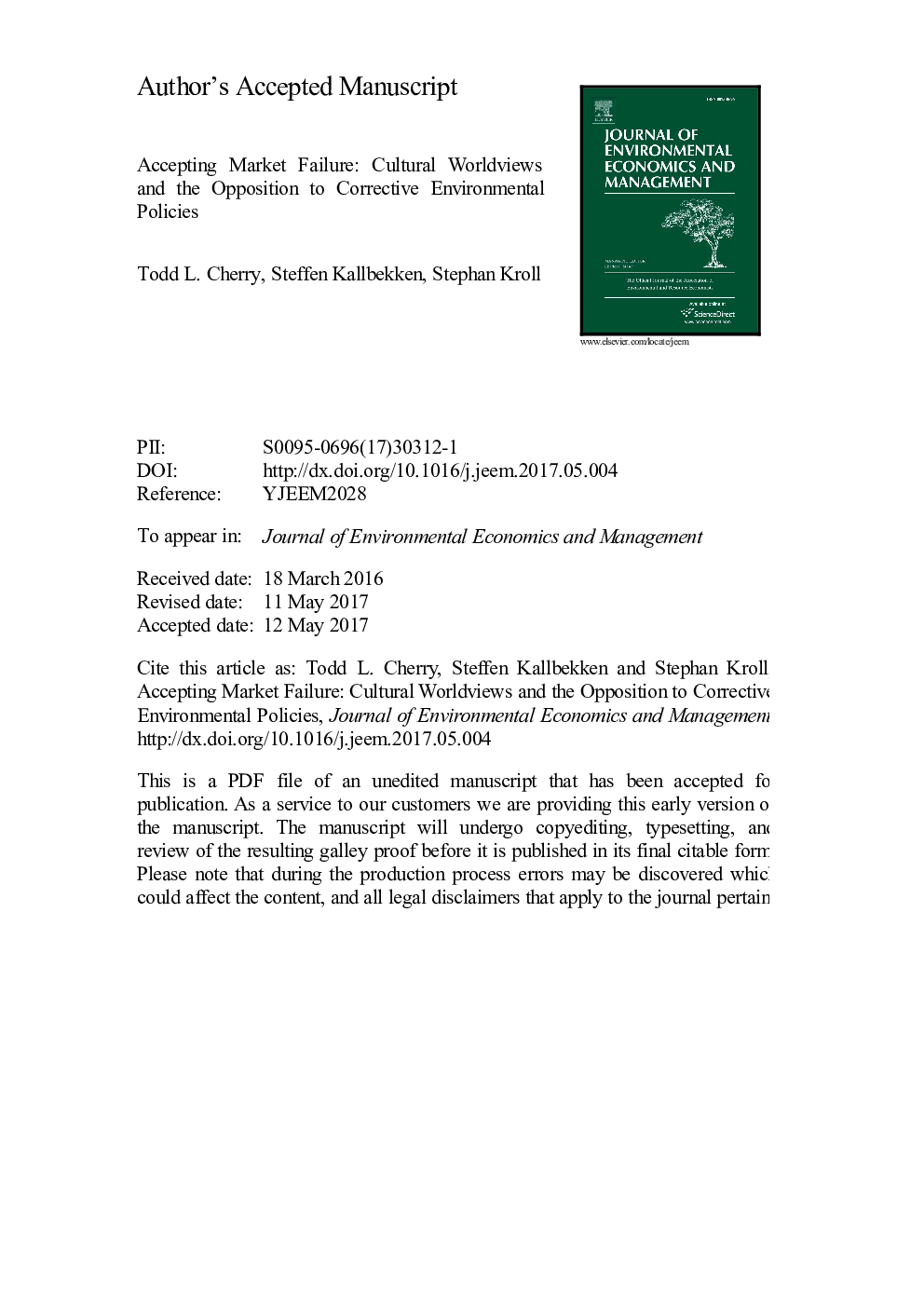| Article ID | Journal | Published Year | Pages | File Type |
|---|---|---|---|---|
| 5100379 | Journal of Environmental Economics and Management | 2017 | 32 Pages |
Abstract
To explore whether and why people sometimes reject environmental policies that improve individual and collective outcomes, we create an experimental market in which transactions generate a negative externality. Market participants endogenously determine whether to implement corrective policies. We consider three policy instruments (Pigouvian taxes and subsidies, and quantity regulation) and two levels of policy efficiency (full and half). We then explore how individual cultural worldviews might contribute to the rejection of policies that correct the market failure. Our results indicate that people often oppose policies that improve their material outcomes, and we find that such opposition is significantly explained by cultural worldviews. Interesting connections emerge between individual worldviews and specific policy instruments.
Related Topics
Social Sciences and Humanities
Economics, Econometrics and Finance
Economics and Econometrics
Authors
Todd L. Cherry, Steffen Kallbekken, Stephan Kroll,
